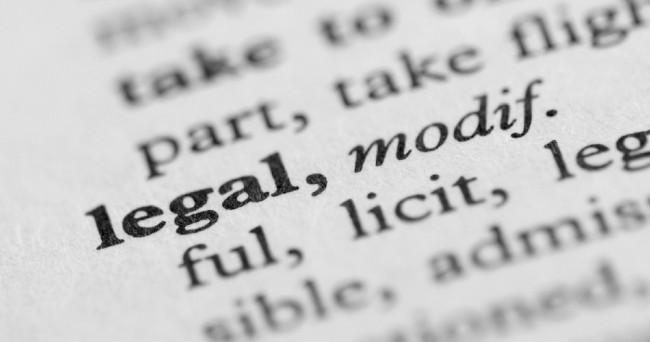
When talking with personal injury lawyers, you will notice that they use legal jargon when speaking with you and others involved in your case. Some attorneys may explain the terms; however, others may not realize you do not know what they are talking about. For the lay person, it can be confusing so here are some common personal injury terms to know.
Questions? Call us at (877) 284-6600.
The Plaintiff, also known as the complainant, brings the legal action or files the lawsuit against the other party. For instance, if you were involved in a car accident where another driver was at fault and you filed a lawsuit, you would be the plaintiff.
The Defendant is the party who is allegedly liable for the plaintiff’s injuries and against whom the civil lawsuit or claim has been filed.

A personal injury claim is filed by the plaintiff.
Complaint. The plaintiff initiates a lawsuit by filing a complaint. Complaints, the first documents filed in court, are the original court documents.
Answer. This is a document one side in a lawsuit files to respond to another’s court filing. For example, a defendant files a formal answer to the complaint initiated by the plaintiff which addresses the allegations made.
Claim. If you suffered injuries (physical, mental or emotional), you may file a claim against the liable party. Filing a claim is the first step in your personal injury case.
Statute of Limitations. The filing of all civil actions is governed by time limitations. The statute of limitations refers to the time limit a plaintiff has to file a claim against the defendant. These can vary from case to case and even state to state depending on the circumstances; however, state law controls the statute of limitations.
Discovery is the process in which both parties investigate and gather evidence to support their claims and is governed by the Rules of Civil Procedure.
Liability is the concept of fault, i.e., which party involved bears the responsibility. For example, when someone is held liable for an accident or injury they are deemed at fault for it and may be held responsible for compensating the injured party for damages.
A Settlement is one of the ways a personal injury claim may be resolved in which the parties typically reach an agreement about monetary compensation for injuries and other important issues in a case.
A Verdict is another way a personal injury claim may be resolved. This refers to the final judgment of a judge or jury at the conclusion of a trial.
Negligence in broad strokes is carelessness. If a person acts carelessly in a way that a reasonable person should not, they have acted negligently. When a person’s negligent behavior hurts someone else, it can lead to a personal injury lawsuit.
To prove negligence, a plaintiff must prove:
Duty, breach, causation and damages are the legs of the negligence stool to be aware of.
Duty of Care or Duty refers to someone’s obligation to provide a certain standard or type of care to the injured party. Failing to meet this requirement can be considered negligence and the defendant (the one who failed in this duty) could be found liable.
Breach is when a person, who has a duty of care to someone else, fails to maintain that responsibility and act reasonably.
Causation, simply put, means that a person’s negligent behavior is the cause of the victim’s losses. So, in order for an injured person to recover, it must be proven that the other person’s behavior was the reason for the injuries.
Damages is what the injured party (the plaintiff) seeks to recover. In personal injury lawsuits, damages usually are monetary and can be either economic or non-economic. Economic damages can include things such as medical bills, lost wages, and replacement services, whereas, non-economic include things such as pain & suffering.

Have you been seriously injured in a motor vehicle accident, a slip and fall or some other accident in which you suffered serious injuries due to another’s negligence? Call Nash & Franciskato at (877) 284-6600. We have a successful track record helping accident victims collect the compensation they deserve.
One of our experienced staff will speak with you personally and will provide you with a free, no-obligation review of your case.
SCHEDULE A FREE REVIEW OF YOUR CASE
Would you like to receive news and blog updates on a regular basis? Sign up to receive our email newsletter. Your email address will only be used to send you our newsletter and respond to inquiries.
Past results afford no guarantee of future results and each case is different and is judged on its own merits. The choice of a lawyer is an important decision and should not be based solely upon advertisements.
Editor’s Note: This post was originally published May 20, 2021. It was reviewed on January 3, 2023 and updated for content and accuracy.